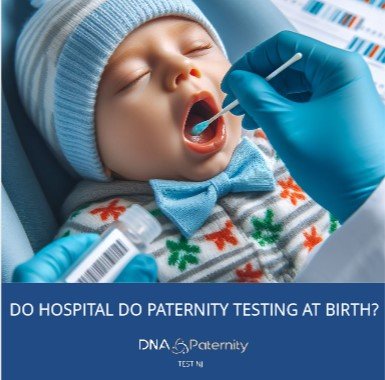
Do Hospitals perform Paternity Testing At Birth?
No. Hospitals do not provide DNA paternity testing services to their patients in most states. If you require DNA testing services to establish paternity contact our office at 973-609-5102.
Can DNA sample collection be performed at the hospital after birth?
Yes. In most instances performing DNA sample collection at a hospital for paternity DNA test is possible. Before the collection can take place we recommend that you speak the birthing department’s head nurse to get permission to have one of our DNA sample collection technicians collect your baby’s samples.
How long does it take for a DNA test to come back from the hospital?
The turnaround time 2 to 3 business days for your DNA results to be completed after all DNA sample have been collected at the hospital and shipped to laboratory.
How do you perform a DNA test on a newborn?
The following is brief overview to performing a DNA test sample collection on a newborn when you purchase an At-Home Paternity Test Kit.
Tips for Collecting DNA from a Newborn Baby or Infant.
- Do not feed the baby or provide water for 60 minutes prior to swabbing. Doing so can’t change the DNA or affect results, but it could contaminate the sample and bring about the need to collect new samples.
- Swab the baby while they’re asleep. It’s hard to swab a squirming, wiggling baby, so doing it while they’re asleep is a great solution.
- Make sure to rub each swab for a full 30 seconds on the inside of the cheek, while trying hard to avoid the gum areas.
- If a swab seems a little wet, simply hold the swab in the air for about 60 seconds before placing it in the paper sample envelope.
- Do not touch the tip of the swab with your own hand, to prevent the chance of contamination.
Remember, the above-listed tips are to be utilized if you decide to use a home DNA test kit and collect your own samples.
If you need a legal DNA paternity test. Please contact our office today so we can coordinate an appointment with a professional DNA sample collector. He or she will be responsible for collecting your sample and making sure the DNA sample collection process follows the proper chain of custody guidelines.


